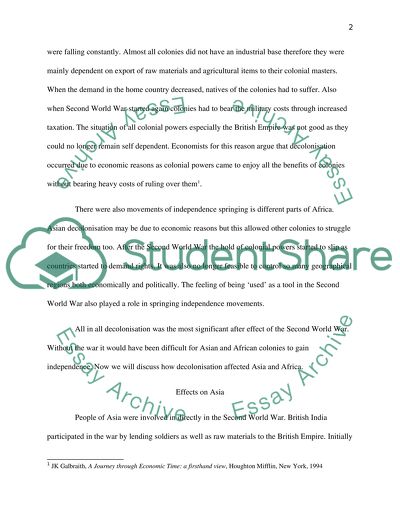Cite this document
(“Effects of the Second World War on Asia and Africa Essay”, n.d.)
Retrieved from https://studentshare.org/history/1445153-effects-of-the-second-world-war-on-asia-and-africa
Retrieved from https://studentshare.org/history/1445153-effects-of-the-second-world-war-on-asia-and-africa
(Effects of the Second World War on Asia and Africa Essay)
https://studentshare.org/history/1445153-effects-of-the-second-world-war-on-asia-and-africa.
https://studentshare.org/history/1445153-effects-of-the-second-world-war-on-asia-and-africa.
“Effects of the Second World War on Asia and Africa Essay”, n.d. https://studentshare.org/history/1445153-effects-of-the-second-world-war-on-asia-and-africa.


